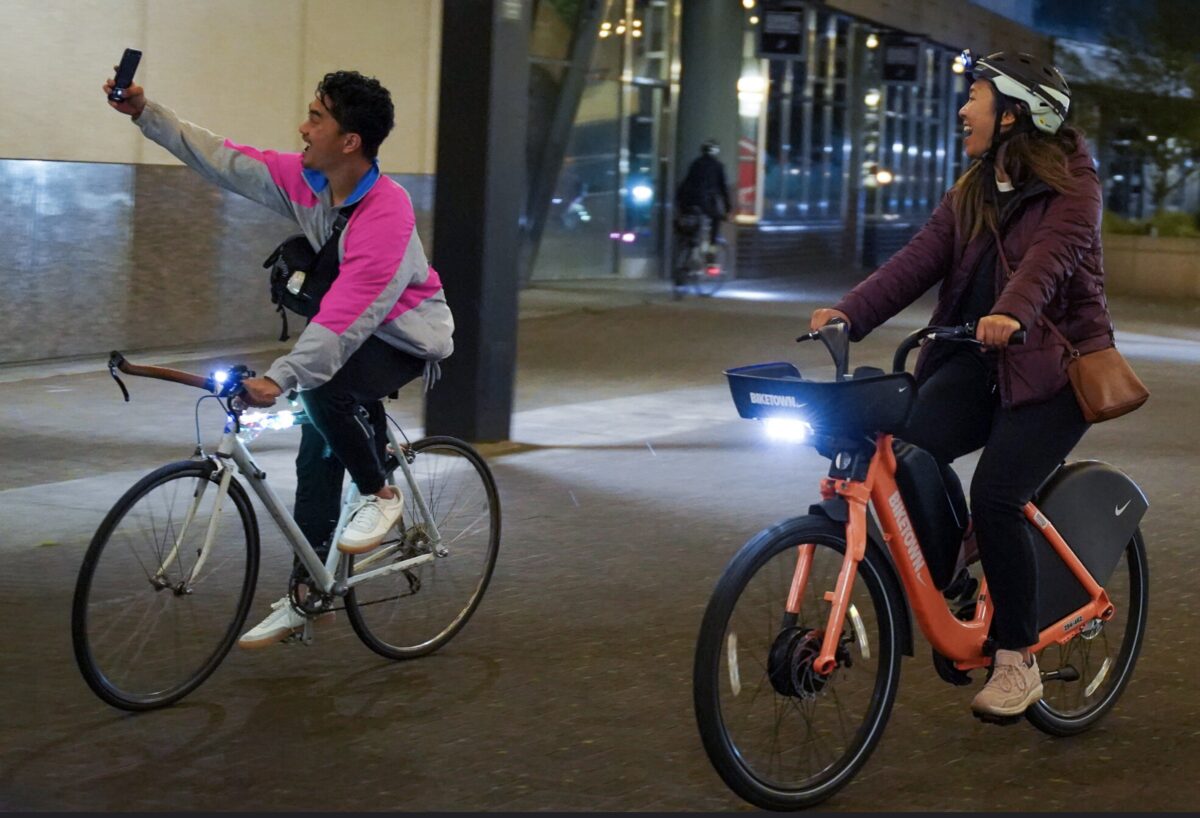
A report released today by Lyft (the operator of Biketown and other shared micromobility systems across the country) shows there’s been a boom in shared scooter and bike systems in Portland and in other cities nationwide — and the people riding this wave are increasingly more diverse.
“Lyft bikeshare members rely heavily on public transit and more than two-thirds do not own or lease a personal vehicle.”
— from the report
According to the 2022 Lyft Multimodal Report, over 37,000 new riders tried Biketown in 2021. And according to data we already have for 2022, this number is likely to be even higher on next year’s report: PBOT shared there was a 112% increase in Biketown ridership from January 1 – February 1 of this year compared to the same period in 2021. And just last weekend, when Biketown went fee-free for three days to celebrate Earth Day, the bike share service set a new one day trip record of 3269, which is almost 1000 more rides than the 2021 one day trip record of 2465.
What accounts for the micromobility enthusiasm? For one, these services have matured. They’re more accessible and the area they cover is larger. Biketown went electric near the end of 2020, increasing its service area by 50% at the same time, which was a game-changer.
We recently shared some things people working with shared micromobility in Portland are doing to make services like Biketown and e-scooters more accessible, and from the data, the results of their efforts look promising. Across the country, rides in low-income areas increased by 65% since 2020, a move attributed in part to broader coverage.
The two graphics below show stats from the Lyft report:
Advertisement
The Lyft report also showed that of all Portlanders who used Biketown in 2021, 43% identify as members of racial and/or ethnic minority groups. 16% of them identified as Black, African
American, or Afro-Caribbean. That’s a much different picture than Portland as a whole where the population is about 77% white and only about 6% Black.
Scooting in Waterfront Park.All of this new ridership means travel behaviors have shifted, too: a substantial amount of people are reporting Biketown is making them think twice about driving a car. Lyft reports 28% of people who have access to a car drove it less because of access to Biketown.
The Lyft report also offers advice for what cities can do to continue to see even more progress in shared bike and scooter usage. They suggest cities build more protected infrastructure, install more stations to improve reliability and access, electrify stations so the devices can charge on their own and continue to explore how public-private partnerships (like the one between PBOT and Lyft) can enhance these programs.
Another key takeaway of this report is how our transit systems play a key role. “Findings from the 2022 Lyft Multimodal Report continue to underscore the important relationship between micromobility and public transit. Lyft bikeshare members rely heavily on public transit and more than two-thirds do not own or lease a personal vehicle,” the report states.
As these systems mature and become a part of our transportation foundation, this report underscores their value even more and validates calls from advocates to expand and improve them with funding beyond private sponsorship dollars. Check out the full report here and the Biketown supplement here.



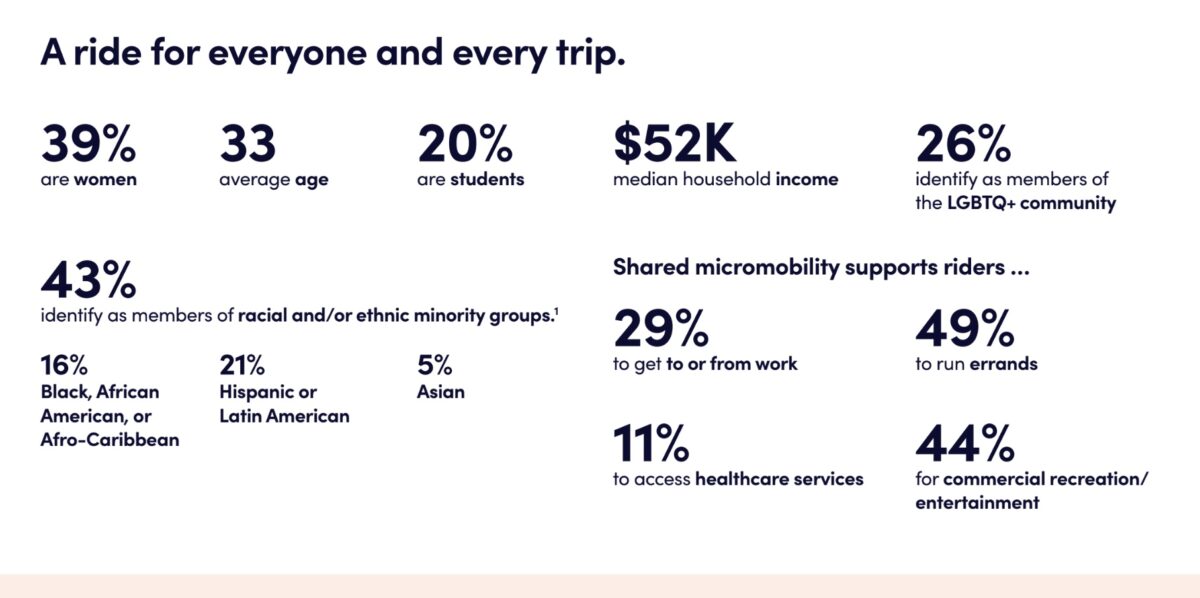
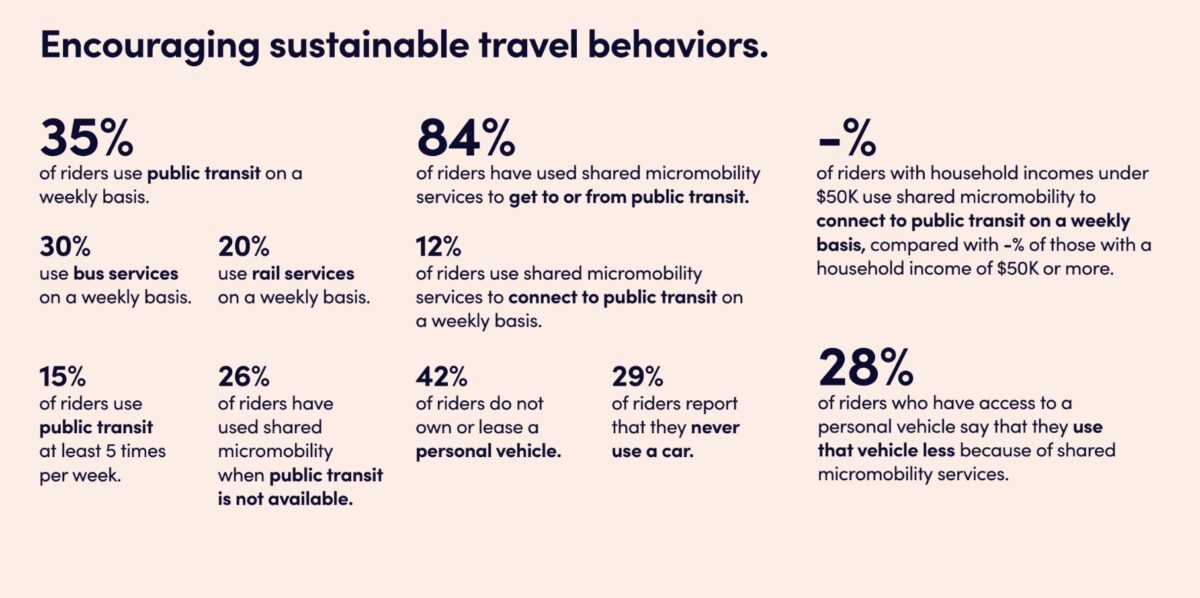
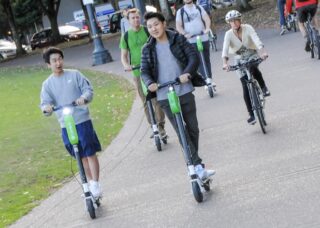
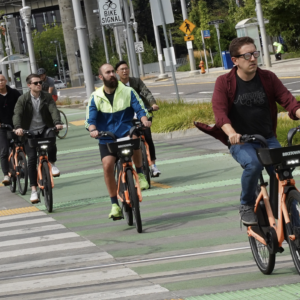
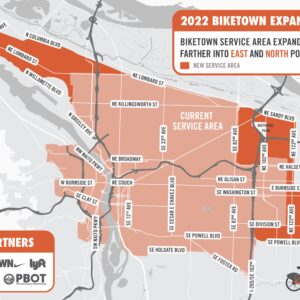
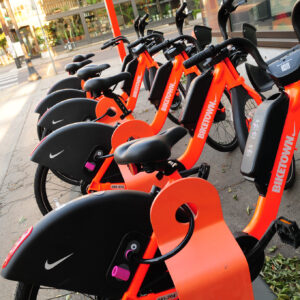
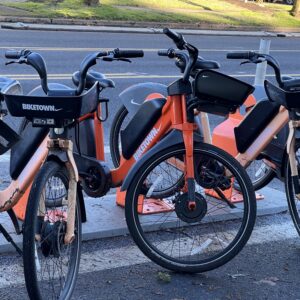
Thanks for reading.
BikePortland has served this community with independent community journalism since 2005. We rely on subscriptions from readers like you to survive. Your financial support is vital in keeping this valuable resource alive and well.
Please subscribe today to strengthen and expand our work.
Wonder how much better the numbers will be for low income and POC folks once they get service out beyond 122nd (which only recently started to have them) instead of focused on the downtown core (from 82nd to the river is “downtown core” in my living near 122nd brain).
That first picture looks like a dangerous riding situation.
Run into an elderly pedestrian or a small kid. Hit a curb, pothole, or random piece of trash and crash. I really don’t care what they do, I’m just surprised that this site would show a picture promoting distracted riding.
“distracted riding/driving” is something cars and motorcycles do, and a crime. not having to focus 100% on the road, and being able to relax and have fun with friends, as you might while walking, is a positive outcome of safe, high quality cycling routes.
Distracted driving is a problem in cars because of their limited field of view and insulation of the driver from their surroundings. It’s just not as big of a deal on a bicycle.
Another thing e-bikes and scooters have done well is make their systems easy to use by people who are just visiting. Anecdotally, I was just part of a week-long conference happening here in Portland, and quite a few people were using Biketown and scooters to explore the city, rather than Uber/Lyft or rental cars. Even a few years ago that would not have been the case.
Congrats PBoT / Lyft for having a ride day record into the 3000s!!! Remaking Portland into Bike Town again…
The electrification of the bikes was a gamechanger for me. The old bikes were tanks, the new ones are just a joy to ride in comparison.
Great point. I loved the old bikes, but they were heavy. Anytime it would snow I’d ditch my bike and get a BIKETOWN into work. I’ve ridden several miles on the new bikes without really breaking a sweat.